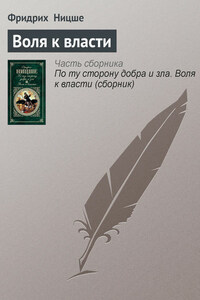INTRODUCTORY
ABOUT RAINDROPS
The river of Tavy is a great mountain-carver. From its mud-holes of Cranmere to the walls of Tavistock it is a hewer of rocks. Thenceforth it becomes a gardener, raising flowers and herbs; it becomes idyllic. It goes into Arcadia. And at last it floats ships of war.
There is a story in Hebrew literature of a king called Solomon, a man reputed wise, although a fool with women, who desired to build a temple to his God. There was a tradition which forbade the use of hammer or chisel in the erection of a place of worship, because, according to the Mischna, "Iron is used to shorten life, the altar to prolong it." The stones were not to be hewn. The temple was to be built noiselessly. The narrative suggests that Solomon had the stones cut and shaped at some distance from the building site, which was a decidedly Jesuitical way of solving the problem. Myth suggests that the king sought the aid of Asmodeus, chief of the devils, who told him where he could discover a worm which would split the toughest rock. The introduction of the devil to assist in the building of the temple was no doubt of Persian origin, since Persian thought influenced Hebrew literature just as Grecian thought was later to influence that of Rome. The idea of noiseless building, of an altar created by supernatural powers, of burrowing for minerals and metals without tools, is common to the literature of every country. It is one of the stock tales of folk-lore found everywhere. In one place it is a worm which shatters the mountains; in another a black stone; and in another a herb, such as the innocent forget-me-not, and the various saxifrages of the cottage garden. All the stories agree upon three points: the name of the rock-shatterer signifies irresistible force; it is invariably a small and insignificant object; and it is brought to mankind by a bird. That bird is the cloud; and the worm, pebble, or herb, which shatters mountains is the raindrop.
This is the story of the river Tavy, its tors and cleave, just as the pixy grandmother told it to the little round-eyed ones on a stormy night, when the black-winged raven-cloud was bringing the rain over Great Kneeset, and the whist hounds were yip-yip-yipping upon the "deads" —
"It all happened a long time ago, my impets, a very long time ago, and perhaps I shan't be telling you the story quite right. They say the dates are cut upon the Scorhill Rocks. I couldn't make them out the last time I was there, but then my eyes are getting feeble. You know the Scorhill Rocks, my dears? They are just by the Wallabrook, and near our big dancing stone which the silly mortals call a tolmen. You remember how we danced there on All Hallows E'en. What a beautiful night it was, sure 'nuff! And then you went and pinched the farm maids in their beds, and made them dream of their lovers, mischievous young toads! Well, I don't blame ye, my dears. I liked a bit of a gambol when I was a winikin bit of a pisky maid myself.
"This old Dartymore was a gurt big solid mountain of granite in those days, my pretties. You can't imagine what it was like then, and I can't either. There was no grass on it, and there were no nice vuzzy-bushes to dance round, and no golden blossoms to play with, and no fern to see-saw on, and no pink heather to go to sleep in – and worse and worse, my dears, there wasn't a single pixy in those days either."
"Oh, what a funny old Dartymore!" cried the little round-eyed ones.
"It wasn't an old Dartymore, my pets. It was a brand-new one. There were no bullocks or ponies. There were no bogs and no will-o'-the-wisps. There were no stone remains for stupid mortals to go dafty over, for as you and I know well enough most of 'em are no more stone remains than any other rocks, but are just as the wind and rain made them. There was not a single mortal in those days either, and none of the triumphs of their civilisation, such as workhouses, prisons, and lunatic asylums. There was just the sun and the gurt grey mountain, and right upon the top of the mountain was a little bit of jelly shivering and shaking in the wind."
"But how did it get there?" cried the little round-eyed ones.
"Oh, my loves, you mustn't ask such silly questions. I don't know. Nobody can know. It was there, and we can't say any more. Perhaps there was a little bit of this jelly on the top of every mountain in the world. I can't tell you anything about that. But this little bit on the top of Dartymore was alive. It was alive, and it could feel the wind and the sun, and it would have kicked if it had got any legs to kick with. You will find it all written on the Scorhill Rocks. I couldn't find it, but it must be there, because they say it is. Well, this little bit of jelly shivered away for a long time, and then one day it began to rain. That was a wonderful thing in those days, though we don't think anything of it now. The little bit of jelly didn't like the rain. If it had been a pixy it would have crawled under a toadstool. If it had been a mortal it would have put up its umbrella. But toadstools and umbrellas hadn't been invented. So the poor thing shivered and got wet, because it was a very heavy shower. They say it lasted for several thousand years. While it rained the little bit of jelly was thinking. At last it said to the rain, 'Where do










